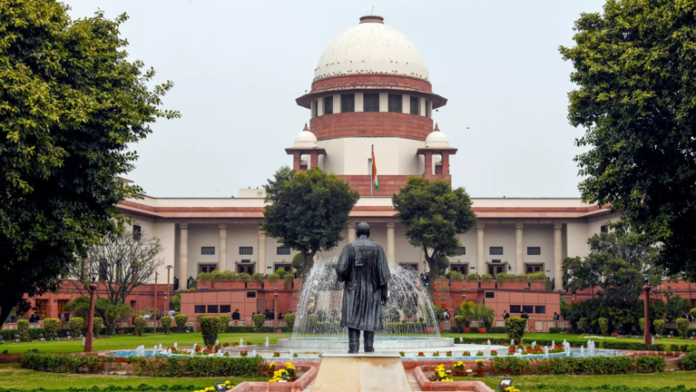The Supreme Court of India has issued a notice to the Centre and the Election Commission of India (ECI) in response to a petition filed by Congress leader Jairam Ramesh. The petition challenges recent amendments to the Conduct of Election Rules, 1961, which Ramesh claims undermine the transparency and accountability of the electoral process by limiting public access to key election-related documents such as CCTV footage and webcasting records.
The amendments to Rule 93(2)(a), introduced in December 2024, revise the provisions that previously allowed public scrutiny of important electoral materials. These amendments, according to Ramesh, limit access to certain electronic records, which could hinder transparency and public oversight during elections. The government, however, justifies these changes by stating that they are necessary to protect voter privacy and prevent misuse of sensitive electoral data.
- Hearing Scheduled: The Supreme Court has scheduled the next hearing for the week commencing March 17, 2025. This marks an important development in the ongoing legal battle concerning electoral transparency in India.
- Nature of Amendments: The contested amendments restrict public access to vital election-related documents, particularly CCTV footage and electronic recordings of webcasting at polling stations. These materials were previously available for public inspection, which ensured electoral accountability.
- Concerns Raised: Ramesh’s petition argues that these changes were made without adequate public consultation and could erode trust in the democratic process. He contends that such unilateral amendments by the Election Commission undermine democratic principles by limiting transparency and accountability in the election process.
Legal Representation and Criticisms
Ramesh is being represented by senior advocates Abhishek Manu Singhvi and Kapil Sibal, who have voiced concerns that these amendments obscure essential electoral data under the pretext of protecting voter privacy. The legal team argues that the amendments limit public oversight of the election process, a fundamental aspect of free and fair elections.
Singhvi and Sibal have criticized the justifications put forward by the government, asserting that the claim regarding the protection of voter identities is unfounded. They argue that CCTV footage does not reveal how individuals vote but serves as a critical tool for ensuring electoral integrity.
Ramesh’s Arguments Against the Amendments
Ramesh’s petition raises several key arguments:
- Erosion of Transparency: Ramesh argues that the amendments restrict access to crucial materials such as CCTV footage and webcasting videos, which play an important role in ensuring electoral transparency and accountability.
- Lack of Public Consultation: Ramesh emphasizes that the Election Commission of India (ECI), as a constitutional body tasked with conducting free and fair elections, should not unilaterally amend significant laws without engaging in proper public consultation.
- Flawed Justifications: He contests the government’s justification for the amendments, arguing that the CCTV footage does not violate voter privacy but is necessary to safeguard the integrity of elections.
- Potential for Misuse: Ramesh claims that the amendments serve to obscure crucial election data under the guise of preventing misuse of electronic records, which could hinder transparency and reduce accountability.
- Call for Judicial Intervention: Ramesh has urged the Supreme Court to intervene and restore transparency in the electoral process, calling for judicial oversight to ensure that the amendments do not compromise the integrity of India’s elections.
Potential Impacts of the Supreme Court’s Decision
The Supreme Court’s decision on this case could have far-reaching consequences for the future of electoral regulations in India. Here are some potential impacts:
- Reinforcement of Electoral Transparency: If the Supreme Court rules in favor of Ramesh, it could strengthen the principle of transparency in elections by ensuring that the public retains access to crucial election materials.
- Precedent for Future Amendments: A ruling against the amendments may set a precedent that limits the ability of the Election Commission and the government to amend election laws without public consultation, thereby safeguarding the democratic process.
- Judicial Oversight: A ruling in favor of Ramesh could reinforce the role of the judiciary in overseeing changes to election laws, ensuring that they align with constitutional principles and uphold democratic values.
- Enhanced Voter Confidence: If transparency is prioritized, the decision could lead to increased voter confidence in the electoral process, encouraging greater participation in future elections.
- Implications for Democratic Practices: The ruling may have broader implications for the democratic process in India, reinforcing the importance of transparency, accountability, and public oversight.
As the March 17, 2025 hearing date approaches, the Supreme Court’s decision will be keenly awaited, as it could shape the future of electoral governance in India and ensure that the election process remains fair and accountable to the people.



